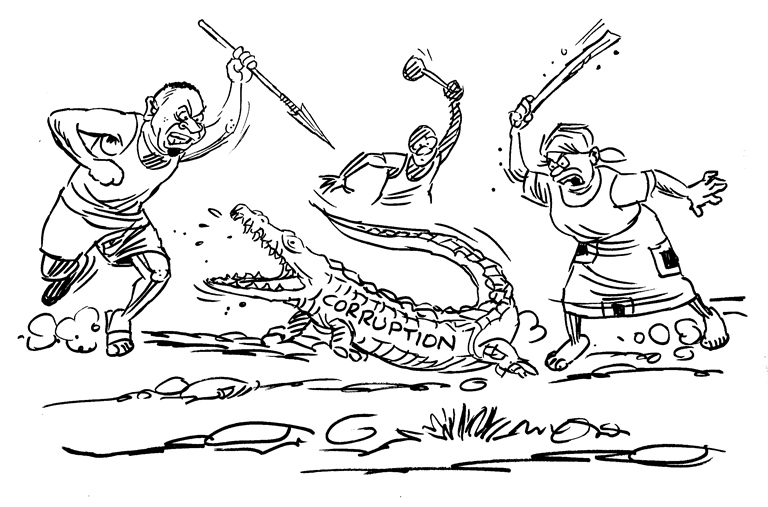If corruption is a disease like cancer
In last week’s entry, I reflected on the use of war metaphors in the representation of corruption. Through that entry, I concluded that the war on corruption can only be won if we outsmart and outnumber the enemy. In today’s entry, I conclude with a focus on disease metaphors, particularly cancer, as used in corruption. Clearly, understanding corruption is the initial step in fighting it. By focusing on cancer, the immediate understanding of corruption is that it is corrosive and, therefore, it erodes the core of our existence. It is argued in other circles that corruption is a disease like cancer where failure to detect and treat at the earliest stage possible leads to the spread of its malignancy. The consequences that follow this spread are disastrous.
Corruption’s cancer metaphor entails that, among other things , corruption occurs in a complex social system. Once established, corruption can spread like a cancer leaving a trail of destruction to public trust, effective governance, and access to services. Once corruption takes a hold on systems, an otherwise healthy and wealthy organisation or society gets destroyed – brought to its knees, literary. Such a trail of destruction makes calls to its treatment even louder. And this is where investment in public education, prevention, investigation and prosecution comes in. As a country, we cannot focus on one at the expense of the others lest the cancer of corruption keeps eating away the areas that are being starved of investment, effort or attention.
As one of the biggest obstacles to social and economic development, corruption is responsible for untold suffering and needs to be treated. How many reports of roads, bridges, and school blocks on paper but not on the ground, thereby denying communities access to better services, have we read? As such, regardless of how this disease takes hold of the body, dying is not an option. A way has to be found of treating this cancer. Sometimes the treatment is not pleasant because the side effects of therapy or medication can be debilitating. In such instances, it requires strength from both patient and guardians to deal with both the psychological and physical challenges associated with treatment.
Fighting corruption, like fighting cancer, must deal with the law of unintended consequences. The most difficult corruption to detect and control goes all the way to the top echelons of our organizations and societies. Given that the causes of corruption are as complex as those of cancer, people’s reactions to its occurrence can also vary. While it remains one of the biggest threats to social and economic development, it is easy to feel that the fight against corruption is out of our hands. However, it is each one of us who holds the power to cure this cancer and reboot as we proceed on a corruption free path that leads us to Malawi Agenda 2063. Feeling sad, hopeless and discouraged are some of the emotional reactions to a cancer diagnosis which are not needed as we battle corruption. In any case, if the corruption being fought is like bone cancer, a limb amputation may be the only way to cure it. That means taking the hard decision of having to dispense with close associates or employees who are throwing




